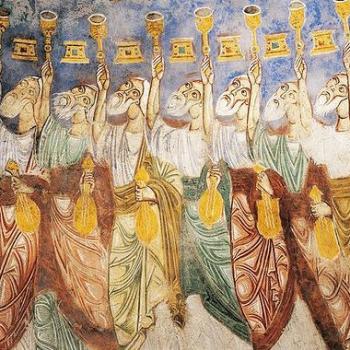About “Why?” By A. Van de Beek
This is for those of you who plan to read Bram van de Beek’s book “Why? On Suffering, Guilt and God” with me. Many of you have reported ordering the book. I want to give you a few suggestions about reading it before we begin in May.
First, please don’t read ahead; wait to read the “assigned” chapters until I announce them.
Second, the book takes its time to get to the main point—like nearly all European theology books I’ve read. In Europe (at least in Germany) theologians are expected to lay the “groundwork,” as it were, before revealing their thesis. You won’t know the fullness of Beek’s thesis until you’ve finished the book, but you will be able to detect where he is headed.
Third, be careful as you read not to confuse Beek’s own views with the ones he describes at some length with which he disagrees. It’s easily to forget whose views he’s talking about—another theologian’s (e.g., Karl Barth) or his own. Keep track of that as you read. I think this is a weakness of European theologians; they are not always very helpful in this regard—by reminding us of about whom they are “talking.” It’s easy to think “No! That can’t be his view!” Or “What? How can he say that?” When, in fact, he’s referring to some other theologian’s view(s).
Fourth, don’t look for philosophical theology in this book. It’s my considered opinion that what Beek is trying to do is follow the biblical narrative about God closely and faithfully without allowing philosophy (e.g., Platonism) to say “That can’t be true because we know God is ‘perfect being’ and therefore must be immutable and impassible.”
Fifth, just to give something away, a bit of a spoiler, the whole book is Beek’s attempt to reconcile God’s goodness and omnipotence—given the facts recorded in scripture about God’s decisions and actions and given the facts of history and the world as we actually know and experience them. He admits that some will object to “anthropomorphic” treatment of God, but he argues, as you will see, that all language about God is anthropomorphic; it’s just a matter of when you call something in the Bible “anthropomorphic” and dismiss it as “figure of speech” (or don’t).
Read carefully, thoughtfully and well. I look forward to this re-reading and conversation about “Why?”
*Note: If you choose to comment, make sure your comment is relatively brief (no more than 100 words), on topic, addressed to me, and civil and respectful (not hostile or argumentative). Also, make sure it is devoid of pictures or links.*


















